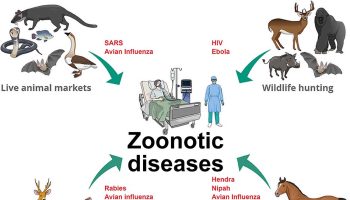Contents
What is Hepatitis
Hepatitis is an inflammation of the liver 1. The condition can be self-limiting or can progress to fibrosis (scarring), cirrhosis, liver failure or liver cancer. Hepatitis viruses are the most common cause of hepatitis in the world but other infections (bacterial, fungal, and parasitic organisms), toxic substances (e.g. alcohol, certain drugs), and autoimmune diseases and metabolic diseases can also cause hepatitis.
There are different ways you can get hepatitis. The two most common are:
- Toxic hepatitis: This can happen if someone drinks a lot of alcohol, takes certain illegal drugs or medicines, or is exposed to poisons.
- Viral hepatitis: In the United States, most hepatitis cases are from the hepatitis A virus (HAV), hepatitis B virus (HBV), or hepatitis C virus (HCV). Though the viruses differ, they have one thing in common: They cause infection and inflammation that is harmful to liver cells.
In the United States, viral hepatitis is most commonly caused by hepatitis A virus (HAV), hepatitis B virus (HBV), and hepatitis C virus (HCV) 2. These three viruses can all result in acute disease with symptoms of nausea, abdominal pain, fatigue, malaise, and jaundice 3. Additionally, acute infection with HBV and HCV can lead to chronic infection. Patients who are chronically infected may go on to develop cirrhosis and hepatocellular carcinoma (HCC) 3. Furthermore, chronic hepatitis carriers remain infectious and may transmit the disease for many years 4.
Infrequent causes of viral hepatitis include adenovirus, cytomegalovirus (CMV), Epstein-Barr virus (EBV) and, rarely, herpes simplex virus (HSV). Other pathogens (eg, virus SEN-V) may account for additional cases of non-A/non-E hepatitis.
Hepatitis causes
Hepatitis can be caused by:
- Immune cells in the body attacking the liver
- Infections from viruses (such as hepatitis A, hepatitis B, or hepatitis C), bacteria, or parasites
- Liver damage from alcohol or poison
- Medicines, such as an overdose of acetaminophen
- Fatty liver
Liver disease can also be caused by inherited disorders such as cystic fibrosis or hemochromatosis, a condition that involves having too much iron in your body.
Other causes include Wilson’s disease, a disorder in which the body retains too much copper.
Hepatitis signs and symptoms
Some people who have hepatitis have no symptoms. Others may have:
- Pain or bloating in the belly area
- Loss of appetite
- Nausea and vomiting
- Diarrhea
- Dark-colored urine and pale bowel movements
- Stomach pain
- Jaundice, yellowing of skin and eyes
- Low fever
- Itching
- Weight loss
Some forms of hepatitis are mild, and others can be serious. Some can lead to scarring, called cirrhosis, or to liver cancer.
You may not have symptoms when first infected with hepatitis B or C. You can still develop liver failure later. If you have any risk factors for either type of hepatitis, you should be tested often.
Sometimes hepatitis goes away by itself. If it does not, it can be treated with drugs. Sometimes hepatitis lasts a lifetime. Vaccines can help prevent some viral forms.
Hepatitis Diagnosis
Your doctor will do a physical exam to look for:
- Enlarged and tender liver
- Fluid in the abdomen (ascites)
- Yellowing of the skin
You may have lab tests to diagnose and monitor your condition, including:
- Ultrasound of the abdomen
- Autoimmune blood markers
- Blood tests to diagnose Hepatitis A, B, or C
- Liver function tests
- Liver biopsy to check for liver damage
- Paracentesis (if fluid is in your abdomen)
Hepatitis treatment
Your health care provider will talk to you about treatment options. Treatments will vary, depending on the cause of your liver disease. You may need to eat a high-calorie diet if you are losing weight.
Outlook (Prognosis) of Hepatitis
The outlook for hepatitis will depend on what is causing the liver damage.
Possible Complications of hepatitis
Complications may include:
- Permanent liver damage, called cirrhosis
- Liver failure
- Liver cancer
Prevention of Hepatitis
- Talk to your provider about having a vaccine to prevent hepatitis A and hepatitis B.
Steps for preventing the spread of hepatitis B and C from one person to another include:
- Avoid sharing personal items, such as razors or toothbrushes.
- DO NOT share drug needles or other drug equipment (such as straws for snorting drugs).
- Clean blood spills with a mixture of 1 part household bleach to 9 parts water.
- DO NOT get tattoos or body piercings with instruments that have not been cleaned properly.
To reduce your risk of spreading or catching hepatitis A:
- Always wash your hands well after using the restroom, and when you come in contact with an infected person’s blood, stools, or other bodily fluid.
- Avoid unclean food and water.
What is Toxic hepatitis
Toxic hepatitis is an inflammation of your liver in reaction to certain substances to which you’re exposed. Toxic hepatitis can be caused by alcohol, chemicals, drugs or nutritional supplements.
In some cases, toxic hepatitis develops within hours or days of exposure to a toxin. In other cases, it may take months of regular use before signs and symptoms appear.
The symptoms of toxic hepatitis often go away when exposure to the toxin stops. But toxic hepatitis can permanently damage your liver, leading to irreversible scarring of liver tissue (cirrhosis) and in some cases to liver failure, which can be life-threatening.
Symptoms of toxic hepatitis
Mild forms of toxic hepatitis may not cause any symptoms and may be detected only by blood tests. When signs and symptoms of toxic hepatitis occur, they may include:
- Yellowing of the skin and whites of the eyes (jaundice)
- Itching
- Abdominal pain in the upper right portion of the abdomen
- Fatigue
- Loss of appetite
- Nausea and vomiting
- Rash
- Weight loss
- Dark or tea-colored urine
When to see a doctor
See your doctor right away if you have any signs or symptoms that worry you.
Overdoses of some medications, such as acetaminophen (Tylenol, others), can lead to liver failure. Get immediate medical care if you think an adult or a child has taken an overdose of acetaminophen.
Signs and symptoms of a possible acetaminophen overdose include:
- Loss of appetite
- Nausea and vomiting
- Upper abdominal pain
- Coma
If you suspect an acetaminophen overdose, immediately call 911, your local emergency services or, in the United States, a poison control center at 800-222-1222. An acetaminophen overdose can be fatal but can be successfully treated if addressed early after ingestion.
Causes of toxic hepatitis
Toxic hepatitis occurs when your liver develops inflammation because of exposure to a toxic substance. Toxic hepatitis may also develop when you take too much of a prescription or over-the-counter medication.
The liver normally removes and breaks down most drugs and chemicals from your bloodstream. Breaking down toxins creates byproducts that can damage the liver. Although the liver has a great capacity for regeneration, constant exposure to toxic substances can cause serious, sometimes irreversible harm.
Toxic hepatitis can be caused by:
- Alcohol. Heavy drinking over many years can lead to alcoholic hepatitis — inflammation in the liver due to alcohol.
- Over-the-counter pain relievers. Nonprescription pain relievers such as acetaminophen (Tylenol, others), aspirin, ibuprofen (Advil, Motrin IB, others) and naproxen (Aleve, others) can damage your liver, especially if taken frequently or combined with alcohol.
- Prescription medications. Some medications linked to serious liver injury include the statin drugs used to treat high cholesterol, the combination drug amoxicillin-clavulanate (Augmentin), phenytoin (Dilantin, Phenytek), azathioprine (Azasan, Imuran), niacin (Niaspan), ketoconazole, certain antivirals and anabolic steroids. There are many others.
- Herbs and supplements. Some herbs considered dangerous to the liver include aloe vera, black cohosh, cascara, chaparral, comfrey, kava and ephedra. There are many others. Children can develop liver damage if they mistake vitamin supplements for candy and take large doses.
- Industrial chemicals. Chemicals you may be exposed to on the job can cause liver injury. Common chemicals that can cause liver damage include the dry cleaning solvent carbon tetrachloride, a substance called vinyl chloride (used to make plastics), the herbicide paraquat and a group of industrial chemicals called polychlorinated biphenyls.
Risk factors for toxic hepatitis
Factors that may increase your risk of toxic hepatitis include:
- Taking over-the-counter pain relievers or certain prescription drugs. Taking a medication or over-the-counter pain reliever that carries a risk of liver damage increases your risk of toxic hepatitis. This is especially true if you take multiple medications or take more than the recommended dose of medication.
- Having a liver disease. Having a serious liver disorder such as cirrhosis or nonalcoholic fatty liver disease makes you much more susceptible to the effects of toxins.
- Having viral hepatitis. Chronic infection with a hepatitis virus (hepatitis B, hepatitis C, or one of the other — extremely rare — hepatitis viruses that may persist in the body) makes your liver more vulnerable.
- Aging. As you age, your liver breaks down harmful substances more slowly. This means that toxins and their byproducts stay in your body longer.
- Drinking alcohol. Drinking alcohol while taking medications or certain herbal supplements increases the risk of toxicity.
- Being female. Because women seem to metabolize certain toxins more slowly than men do, their livers are exposed to higher blood concentrations of harmful substances for a longer time. This increases the risk of toxic hepatitis.
- Having certain genetic mutations. Inheriting certain genetic mutations that affect the production and action of the liver enzymes that break down toxins may make you more susceptible to toxic hepatitis.
- Working with industrial toxins. Working with certain industrial chemicals puts you at risk of toxic hepatitis.
Complications of toxic hepatitis
The inflammation associated with toxic hepatitis can lead to liver damage and scarring. Over time, this scarring, called cirrhosis, makes it difficult for your liver to do its job. Eventually cirrhosis leads to liver failure. The only treatment for chronic liver failure is to replace your liver with a healthy one from a donor (liver transplant).
Prevention of toxic hepatitis
Because it’s not possible to know how you’ll react to a particular medication, toxic hepatitis can’t always be prevented. But you may reduce your risk of liver problems if you:
- Limit medications. Take prescription and nonprescription drugs only when absolutely necessary. Investigate nondrug options for common problems such as high blood pressure, high cholesterol and arthritis pain.
- Take medications only as directed. Follow the directions exactly for any drug you take. Don’t exceed the recommended amount, even if your symptoms don’t seem to improve. Because the effects of over-the-counter pain relievers sometimes wear off quickly, it’s easy to take too much.
- Be cautious with herbs and supplements. Don’t assume that a natural product won’t cause harm. Discuss the benefits and risks with your doctor before taking herbs and supplements. The National Institutes of Health maintains the LiverTox website where you can look up medications and supplements to see if they are linked to liver damage.
- Don’t mix alcohol and drugs. Alcohol and medications are a bad combination. If you’re taking acetaminophen, don’t drink alcohol. Ask your doctor or pharmacist about the interaction between alcohol and other prescription and nonprescription drugs you use.
- Take precautions with chemicals. If you work with or use hazardous chemicals, take all necessary precautions to protect yourself from exposure. If you do come in contact with a harmful substance, follow the guidelines in your workplace, or call your local emergency services or your local poison control center for help.
- Keep medications and chemicals away from children. Keep all medications and vitamin supplements away from children and in childproof containers so that children can’t accidentally swallow them.
Diagnosis of toxic hepatitis
Tests and procedures used to diagnose toxic hepatitis include:
- Physical exam. Your doctor will likely perform a physical exam and take a medical history. Be sure to bring to your appointment all medications you’re taking, including over-the-counter drugs and herbs, in their original containers. Tell your doctor if you work with industrial chemicals or may have been exposed to pesticides, herbicides or other environmental toxins.
- Blood tests. Your doctor may order blood tests that look for high levels of certain liver enzymes. These enzyme levels can show how well your liver is functioning.
- Imaging tests. Your doctor may recommend an imaging test to create a picture of your liver using ultrasound, computerized tomography (CT) or magnetic resonance imaging (MRI).
- Liver biopsy. A liver biopsy can help confirm the diagnosis of toxic hepatitis. During a liver biopsy, a needle is used to extract a small sample of tissue from your liver. The sample is examined under a microscope. Newer, noninvasive tests that confirm liver damage may be available as an alternative to liver biopsy. These tests are magnetic elastography and transient elastography.
Treatment of toxic hepatitis
Doctors will work to determine what’s causing your liver damage. Sometimes it’s clear what’s causing your symptoms, and other times it takes more detective work to pinpoint a cause. In most cases, stopping exposure to the toxin causing liver inflammation will reduce the signs and symptoms you experience.
Treatments for toxic hepatitis may include:
- Supportive care. People with severe symptoms are likely to receive supportive therapy in the hospital, including intravenous fluids and medication to relieve nausea and vomiting. Your doctor will also monitor for liver damage.
- Medication to reverse liver damage caused by acetaminophen. If your liver damage was caused by an overdose of acetaminophen, you’ll receive a chemical called acetylcysteine right away. The sooner this medication is administered, the greater the chance of limiting liver damage. It’s most effective if administered within 16 hours of the acetaminophen overdose.
- Liver transplant. When liver function is severely impaired, a liver transplant may be the only option for some people. A liver transplant is an operation to remove your diseased liver and replace it with a healthy liver from a donor. Most livers used in liver transplants come from deceased donors. In some cases, livers can come from living donors who donate a portion of their livers.
What is Viral hepatitis
There are 5 main viral hepatitis, referred to as types A, B, C, D and E. These 5 types are of greatest concern because of the burden of illness and death they cause and the potential for outbreaks and epidemic spread. In particular, hepatitis B and hepatitis C lead to chronic disease in hundreds of millions of people and, together, are the most common cause of liver cirrhosis and cancer 5.
Hepatitis A virus (HAV) is present in the feces of infected persons and is most often transmitted through consumption of contaminated water or food. Certain sex practices can also spread HAV. Infections are in many cases mild, with most people making a full recovery and remaining immune from further HAV infections. However, HAV infections can also be severe and life threatening. Most people in areas of the world with poor sanitation have been infected with this virus. Safe and effective vaccines are available to prevent HAV.
Hepatitis B virus (HBV) is transmitted through exposure to infective blood, semen, and other body fluids. HBV can be transmitted from infected mothers to infants at the time of birth or from family member to infant in early childhood. Transmission may also occur through transfusions of HBV-contaminated blood and blood products, contaminated injections during medical procedures, and through injection drug use. HBV also poses a risk to healthcare workers who sustain accidental needle stick injuries while caring for infected-HBV patients. Safe and effective vaccines are available to prevent HBV.
Hepatitis C virus (HCV) is mostly transmitted through exposure to infective blood. This may happen through transfusions of HCV-contaminated blood and blood products, contaminated injections during medical procedures, and through injection drug use. Sexual transmission is also possible, but is much less common. There is no vaccine for HCV.
Hepatitis D virus (HDV) infections occur only in those who are infected with HBV. The dual infection of HDV and HBV can result in a more serious disease and worse outcome. Hepatitis B vaccines provide protection from HDV infection.
Hepatitis E virus (HEV) is mostly transmitted through consumption of contaminated water or food. HEV is a common cause of hepatitis outbreaks in developing parts of the world and is increasingly recognized as an important cause of disease in developed countries. Safe and effective vaccines to prevent HEV infection have been developed but are not widely available.
Hepatitis A and hepatitis E typically spread through contact with food or water that has been contaminated by an infected person’s stool. People may also get hepatitis E by eating undercooked pork, deer, or shellfish. The hepatitis A and E viruses typically cause only acute, or short-term, infections. In an acute infection, your body is able to fight off the infection and the virus goes away.
Hepatitis B, C and D commonly occurs through contact with infected blood, semen or other bodily fluid through sex, sharing needles or other drug-injection equipment or from mother to baby at birth. Common modes of transmission for these viruses include receipt of contaminated blood or blood products, invasive medical procedures using contaminated equipment and for hepatitis B transmission from mother to baby at birth, from family member to child, and also by sexual contact. Hepatitis type C is a blood-borne virus that is largely spread by sharing needles or other drug injection equipment. Hepatitis D, which is transmitted through contact with infectious blood, occurs only among people with hepatitis B infection.
The hepatitis B, C, and D viruses can cause acute and chronic, or long-lasting, infections. Chronic hepatitis occurs when your body isn’t able to fight off the hepatitis virus and the virus does not go away. Chronic hepatitis can lead to complications such as cirrhosis, liver failure, and liver cancer . Early diagnosis and treatment of chronic hepatitis can prevent or lower your chances of developing these complications.
When doctors can’t find the cause of a person’s hepatitis, they may call this condition non-A–E hepatitis or hepatitis X. Experts think that unknown viruses other than hepatitis A, B, C, D, and E may cause some cases of hepatitis. Researchers are working to identify these viruses.
Although non-A–E hepatitis is most often acute, it can become chronic.
Acute hepatitis infection may occur with limited or no symptoms, or may include symptoms such as jaundice (yellowing of the skin and eyes), dark urine, extreme fatigue, nausea, vomiting and abdominal pain.
- Hepatitis. Medline Plus. https://medlineplus.gov/hepatitis.html[↩]
- Viral Hepatitis. https://emedicine.medscape.com/article/775507-overview[↩]
- Wasley A, Grytdal S, Gallagher K, Centers for Disease Control and Prevention (CDC). Surveillance for acute viral hepatitis–United States, 2006. MMWR Surveill Summ. 2008 Mar 21. 57 (2):1-24.[↩][↩]
- Previsani N, Lavanchy D, World Health Organization. Hepatitis B (WHO/CDS/CSR/LYO/2002.2). 2002.[↩]
- What is hepatitis ? http://www.who.int/features/qa/76/en/[↩]





